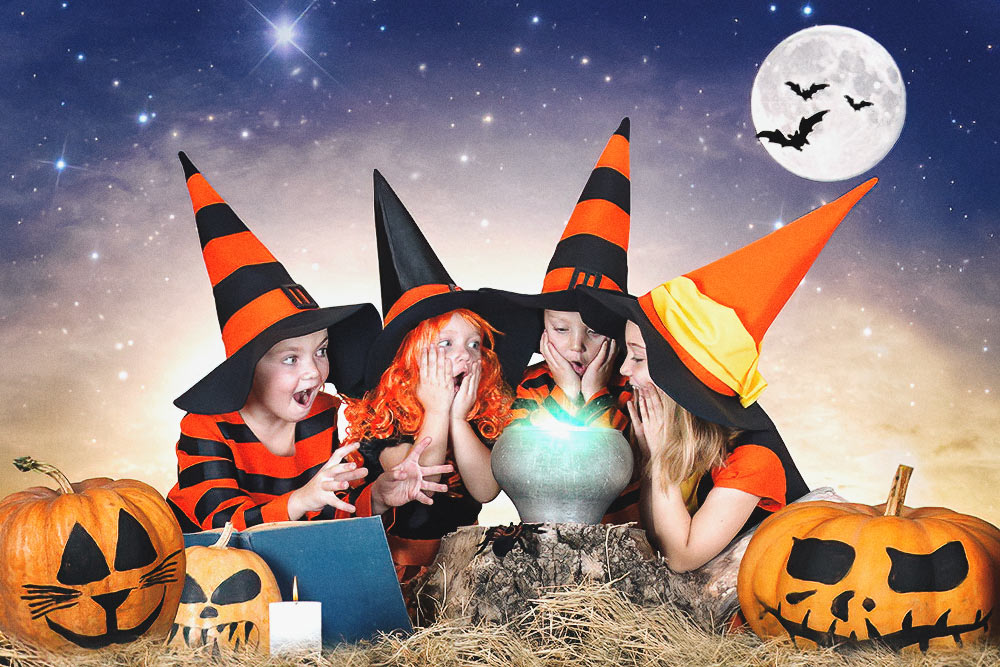Halloween, a widespread tradition rooted in Celtic festivals and celebrated mainly in Western countries, has recently gained traction in Bulgaria. While it’s not a traditional Bulgarian holiday, Halloween has found its way into local culture, with people—especially younger generations—embracing this festive occasion. Let’s delve into how Halloween made its way to Bulgaria, how it’s celebrated today, and the significance of the day that follows it, November 1.
Halloween 2024
For Halloween 2024, Sofia offers a range of family-friendly events to engage children of all ages. Highlights include workshops on Halloween decorations, crafting witch dolls, and themed ceramic painting. Events are spread across venues like Smurfonia Party Club, Nu Boyana Film Studios, and Flo Art Center. Activities include costume contests, animated painting sessions, and Halloween-themed cooking classes. November 1, National Revival Leaders Day, will be celebrated with educational and cultural programs, such as an event at Muzeiko.
Halloween’s Arrival in Bulgaria
The Halloween holiday has only recently become popular in Bulgaria, mainly through the influence of Western media, the internet, and cultural globalization. The celebration began in earnest around the early 2000s, mainly in larger cities and through international schools and events, and has been growing ever since. Younger Bulgarians, fascinated by the costumes, parties, and playful fright associated with Halloween, have been instrumental in the spread of Halloween traditions across the country. Nowadays, Halloween is particularly celebrated in Sofia, Plovdiv, Varna, and Burgas, with parties, costume contests, and themed events becoming more common.
How Halloween Is Celebrated in Bulgaria
- Costumes and Parties
Young Bulgarians enjoy dressing up as their favorite spooky characters, such as vampires, witches, ghosts, and famous fictional figures. Costume parties are familiar in schools, cafes, and nightclubs, where people celebrate the spirit of Halloween with games, themed cocktails, and even costume contests. - Trick-or-Treating and Decorations
While not widespread, some neighborhoods in Bulgaria’s bigger cities have started participating in trick-or-treating. However, this tradition is more limited than in Western countries, as it remains unfamiliar to many Bulgarians. Pumpkin carving and Halloween decorations are becoming increasingly popular, with stores selling Halloween-themed items and families decorating homes with pumpkins, cobwebs, and eerie lights. - Events and Entertainment
Many entertainment venues, including cinemas, bars, and shopping centers, organize Halloween-themed events, such as horror movie screenings, haunted houses, and themed food and drink specials. Restaurants and cafes also offer Halloween-inspired menus, with pumpkin-themed dishes and spooky desserts attracting customers.
Cultural Attitudes Towards Halloween in Bulgaria
Though Halloween is widely enjoyed, it is sometimes met with a mixed reception. Some see the holiday as an imported tradition that overshadows Bulgarian customs. Nonetheless, the event has generally been embraced as a fun, harmless celebration, especially among youth who enjoy the creativity and thrill associated with the holiday.
November 1 in Bulgaria: National Revival Leaders Day
The day following Halloween, November 1, holds an entirely different significance in Bulgaria. Known as National Revival Leaders Day (Ден на народните будители), this day celebrates Bulgaria’s cultural revival and the people who have fought to preserve Bulgarian culture, language, and national identity. Unlike Halloween, November 1 is deeply rooted in Bulgarian history and has been recognized as a day to honor national pride and education.
Origins and Traditions of National Revival Leaders Day
National Revival Leaders Day was established in 1922 to honor those who contributed to Bulgarian education, culture, and enlightenment during the Ottoman rule and the Bulgarian Renaissance. Figures such as Paisii Hilendarski, Vasil Levski, and Hristo Botev are remembered today for influencing Bulgarian identity and culture. Initially a public holiday, November 1 was reinstated in 1992 and is widely celebrated in educational institutions across Bulgaria.
How November 1 is Celebrated
- Educational Celebrations
Schools and universities across Bulgaria organize events to honor national leaders, with presentations, recitations, and performances focused on the lives and achievements of these figures. Students and teachers participate in activities reminding them of Bulgaria’s cultural heritage. - Community Events and Commemorations
Communities, cultural organizations, and government institutions hold events, lectures, and exhibitions dedicated to Bulgaria’s historical figures. Libraries, museums, and cultural centers host exhibitions about the Bulgarian Revival period, while people pay tribute by laying flowers at the monuments of national leaders. - Reflection on Bulgarian Identity
This day reminds Bulgarians to honor their heritage, culture, and language. It is often considered a more reflective holiday, encouraging people to think about the struggles and achievements that led to the preservation of Bulgaria’s national identity.
Halloween and National Revival Leaders Day: A Unique Contrast
The juxtaposition of Halloween and National Revival Leaders Day reflects the diverse and evolving nature of cultural celebrations in Bulgaria. At the same time, Halloween introduces elements of global pop culture; November 1 grounds Bulgarians in their historical roots. Halloween is often seen as lighthearted and fun, appealing especially to youth, while November 1 is a time for pride, reflection, and remembrance, celebrated across generations.
Halloween has gradually taken root in Bulgaria, adding a festive, creative twist to October’s end. As Bulgarians engage in costumes, parties, and a hint of spooky fun, the following day serves as a reminder of their heritage—National Revival Leaders Day on November 1 honors Bulgaria’s cultural and educational pioneers, offering a moment for national pride and reflection. These two days represent a unique blend of global influence and artistic tradition, making late October and early November a time for celebration and commemoration in Bulgaria.



